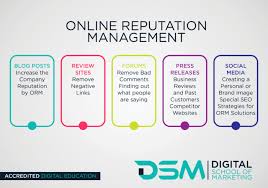Navigating the Political Landscape: The Role of Public Affairs Consulting Firms
The Role and Importance of Public Affairs Consulting Firms
Public affairs consulting firms play a crucial role in today’s complex political and business landscape. These firms provide strategic advice and assistance to businesses, organisations, and individuals seeking to navigate the intricate world of public policy, government relations, and stakeholder engagement.
Services Offered by Public Affairs Consulting Firms
Public affairs consulting firms offer a range of services tailored to meet the specific needs of their clients. These services may include:
- Government relations: Building relationships with policymakers, legislators, and government officials to advocate for clients’ interests.
- Policy analysis: Monitoring legislative developments, analysing policy proposals, and providing insights on potential impacts.
- Stakeholder engagement: Engaging with key stakeholders, such as community groups, industry associations, and advocacy organisations to build support for clients’ initiatives.
- Issue management: Developing strategies to address public policy challenges, crises, or controversies that may impact clients’ reputation or operations.
The Importance of Public Affairs Consulting Firms
In an increasingly interconnected world where business decisions are influenced by government policies and public opinion, the role of public affairs consulting firms is more critical than ever. These firms help clients understand the political landscape, anticipate regulatory changes, and shape public discourse on key issues affecting their interests.
Benefits of Working with Public Affairs Consulting Firms
Collaborating with a reputable public affairs consulting firm can offer several benefits to businesses and organisations:
- Expertise: Access to a team of experienced professionals with in-depth knowledge of government processes and public policy issues.
- Strategic counsel: Guidance on developing effective advocacy strategies that align with clients’ objectives and values.
- Networking opportunities: Connections to key decision-makers and influencers that can help advance clients’ interests.
- Risk mitigation: Proactive monitoring of legislative developments and regulatory changes to identify potential risks or opportunities for clients.
In Conclusion
Public affairs consulting firms play a vital role in helping businesses navigate the complexities of the political environment. By providing strategic advice, advocacy support, and stakeholder engagement services, these firms empower their clients to achieve their policy objectives while maintaining a positive reputation in the eyes of policymakers and the public.
Eight Essential Tips for Success in Public Affairs Consulting
- Understand the political landscape and current affairs
- Build strong relationships with key stakeholders
- Stay updated on policy changes and regulations
- Offer strategic advice to clients on public affairs issues
- Develop effective communication strategies for clients
- Provide insights on public opinion and perception
- Engage in advocacy efforts on behalf of clients
- Maintain transparency and ethical standards in all activities
Understand the political landscape and current affairs
To succeed in the realm of public affairs consulting, it is crucial to have a deep understanding of the political landscape and current affairs. By staying informed about political developments, policy changes, and key issues affecting various stakeholders, consulting firms can provide valuable insights and strategic advice to their clients. This knowledge allows them to anticipate challenges, identify opportunities, and tailor effective communication strategies that resonate with policymakers and the public. In a dynamic and ever-changing environment, being well-versed in the political landscape is essential for guiding clients towards achieving their advocacy goals and navigating complex regulatory environments.
Build strong relationships with key stakeholders
Building strong relationships with key stakeholders is a fundamental tip for success in public affairs consulting firms. By cultivating trust and open communication with policymakers, community groups, industry associations, and other relevant stakeholders, consulting firms can effectively advocate for their clients’ interests and navigate complex regulatory environments. Strong relationships not only enhance credibility and influence but also provide valuable insights and support in shaping public policy decisions that impact clients’ businesses or organisations.
Stay updated on policy changes and regulations
Staying updated on policy changes and regulations is essential for public affairs consulting firms to provide effective guidance and support to their clients. By monitoring legislative developments and regulatory updates, these firms can anticipate potential impacts on their clients’ interests and proactively adjust their strategies accordingly. Keeping abreast of policy changes also allows public affairs consultants to offer timely advice, navigate potential challenges, and identify opportunities for advocacy on behalf of their clients. This commitment to staying informed ensures that public affairs consulting firms remain valuable partners in helping businesses navigate the ever-evolving political landscape.
Offer strategic advice to clients on public affairs issues
Public affairs consulting firms provide invaluable strategic advice to clients on a wide range of public affairs issues. By leveraging their expertise in government relations, policy analysis, and stakeholder engagement, these firms offer tailored guidance that helps clients navigate complex political landscapes and achieve their advocacy goals effectively. This strategic advice not only assists clients in understanding the implications of public policy decisions but also empowers them to proactively shape public discourse and influence key stakeholders in their favour.
Develop effective communication strategies for clients
Developing effective communication strategies for clients is a fundamental aspect of the services provided by public affairs consulting firms. By crafting tailored communication plans that align with clients’ goals and values, these firms can help businesses and organisations effectively convey their messages to key stakeholders, whether they are policymakers, the media, or the general public. Effective communication strategies not only enhance a client’s reputation and credibility but also play a crucial role in influencing public opinion and driving positive outcomes for their initiatives.
Provide insights on public opinion and perception
Public affairs consulting firms play a crucial role in providing valuable insights on public opinion and perception to their clients. By closely monitoring and analysing public sentiment, these firms help businesses and organisations understand how they are perceived by the general public, key stakeholders, and policymakers. This information is essential for shaping effective communication strategies, building trust with the community, and addressing any potential reputational risks. Through their expertise in gauging public opinion, public affairs consulting firms enable their clients to make informed decisions that align with the expectations and values of the wider society.
Engage in advocacy efforts on behalf of clients
Engaging in advocacy efforts on behalf of clients is a key strategy employed by public affairs consulting firms to influence policy decisions and promote the interests of their clients. By leveraging their expertise in government relations and stakeholder engagement, these firms work to build support for clients’ initiatives, shape public opinion, and drive legislative outcomes in their favour. Through targeted advocacy campaigns and strategic communication efforts, public affairs consulting firms play a crucial role in amplifying their clients’ voices and advancing their policy objectives in a complex and competitive political landscape.
Maintain transparency and ethical standards in all activities
Maintaining transparency and upholding ethical standards in all activities is a fundamental principle for public affairs consulting firms. By operating with integrity and openness, these firms build trust with clients, stakeholders, and the public. Transparency ensures that all interactions are conducted honestly and ethically, fostering a positive reputation and credibility for the firm. Upholding ethical standards demonstrates a commitment to responsible business practices and helps navigate potential conflicts of interest or ethical dilemmas effectively. Overall, prioritising transparency and ethics in all activities is essential for public affairs consulting firms to establish long-term relationships based on trust and integrity.









